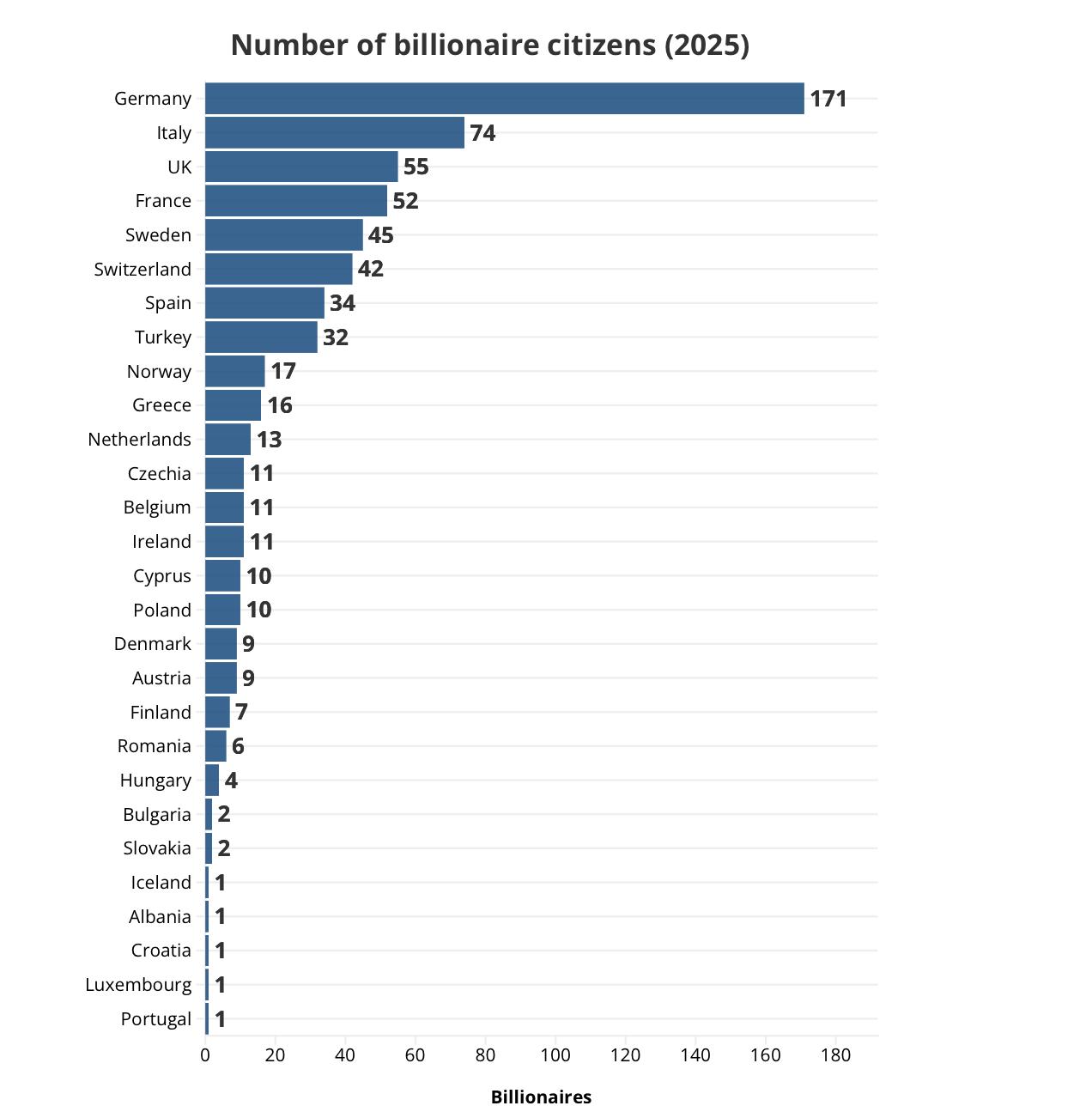According to Forbes, as of 2025, there are over 3,000 billionaires worldwide, with a combined wealth exceeding $16.1 trillion (around €13.7 trillion). Nearly a quarter of this wealth belongs to Europeans, and more than 20% of all billionaires live in Europe—a figure that continues to grow steadily.
On the continent, Germany ranks first by the number of billionaires, followed by Italy, the United Kingdom, France, and Sweden. These countries account for over half of all major fortunes in Europe, highlighting the uneven distribution of wealth in the region. Interestingly, Cyprus ranks only fifteenth on the list.
Where Europe’s wealth is concentrated
Germany maintains a clear lead with 171 billionaires and a combined fortune of over €676 billion. The richest German is Dieter Schwarz, owner of the Lidl and Kaufland chains, with an estimated net worth of €35 billion.
Italy follows with 74 billionaires and a total capital of €289 billion. The wealthiest Italian is Giovanni Ferrero, owner of the Ferrero chocolate empire, with an estimated fortune of €32.6 billion.
The United Kingdom hosts 55 billionaires, led by Michael Platt, a financier and co-founder of BlueCrest Capital, with an estimated net worth of around €16 billion.
Northern and Southern Europe: growing economies and new wealth
In Northern Europe, Sweden (45 billionaires) and Switzerland (42 billionaires) remain prominent. Their wealthiest residents include Stefan Persson (H&M group) and the ship-owning couple Gianluigi and Rafaella Aponte, each with fortunes exceeding €32 billion.
In Southern Europe, Spain leads with 34 billionaires, including Amancio Ortega, founder of Inditex (Zara), whose net worth exceeds €100 billion.
Cyprus and Greece
Cyprus is home to 10 billionaires, while Greece has 16. For Cyprus, this reflects rapid growth, considering the size of its economy and population. Most Cypriot billionaires are active in finance, shipping, technology, and real estate.
In recent years, Limassol and Nicosia have become hubs for international investors, and some wealthy foreigners have moved their assets to Cyprus following EU tax reforms. Experts note that thanks to a favorable tax system, flexible legislation, and a growing reputation in financial services, Cyprus is gradually becoming a regional center for capital and private business.

Wealth inequality and distribution trends
Despite economic growth, capital inequality in Europe remains significant. The richest segment of the population holds over 20% of total wealth, and in some countries—more than 25%. Economists link this to the concentration of large fortunes in finance and technology, as well as rising real estate prices, particularly in Mediterranean countries, including Cyprus.
Cyprus: an island of investments and financial opportunities
In 2025, Cyprus continues to experience stable economic growth, despite global challenges. According to European Commission forecasts, the country’s GDP is expected to grow by 2.8% by year-end, with the services sector, including finance and real estate, remaining the main income source.
Reforms in digitalization, new tax initiatives, and investor attraction programs make Cyprus appealing not only to billionaires but also to medium-sized businesses. The island continues to strengthen its reputation as a platform for international investment and financial operations.
